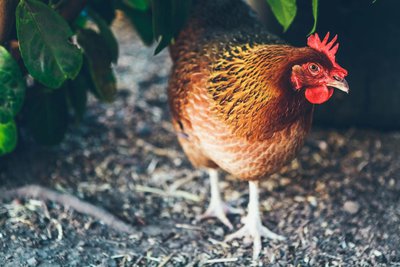
With the growing popularity of urban farming come some concerns. What do you do with your chickens once they stop laying eggs?
Last February, the city of Eugene adopted a new backyard farming ordinance allowing urban farmers to keep up to six chickens in their backyard, as well as other smaller barnyard animals. Lately, stories of chickens abandoned by overwhelmed urban farmers have been piling up in the national media, but Eugenean chickens can be reassured: It’s still a non-issue in this area.
“People who do urban farming are generally responsible people,” says Bill Bezuk, owner of The Eugene Backyard Farmer, an urban farming supply store in downtown Eugene.
His records list more than 5,000 chicken owners in the Eugene area, yet there are currently only two chickens in the First Avenue Shelter, which houses Eugene and Lane County’s strays.
Kelly Darnell, Eugene’s animal services manager, says that most chickens found on the streets escape from their houses. They are kept in a barn until the owner comes to pick them up. However, there are only a few cases each year.
While local shelters are equipped to host the chickens temporarily, the Lighthouse Farm Sanctuary in Scio, north of Albany, is dedicated to the rescue, rehabilitation and placement of farm animals. However, stray and unwanted Eugene chickens are not turning up there either.
“I think people raise their chickens not just for the entertainment value and the compost and the eggs but also they treat them as pets,” Bezuk says. And you don’t abandon pets, he continues.
For now, Eugene chickens can rest easy: Depending on the care, they can live a couple years after they stop laying eggs. Some people choose to make older chickens into soup once they stop producing, while others in Eugene end up keeping the chickens in their backyard as pets for entertainment or as a means to get rid of unwanted insects.